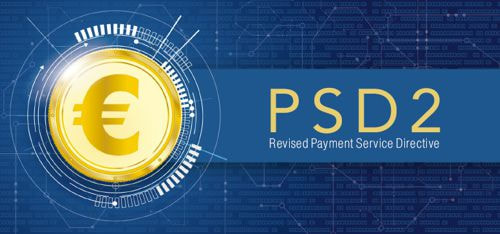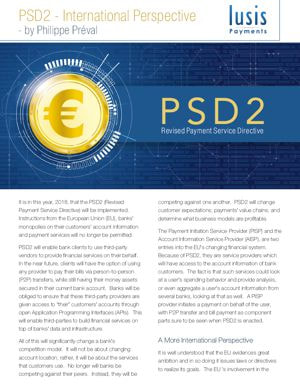Looking Back, Looking Ahead: Lusis Payments Makes Strides to Revolutionize Payments Technology1/1/2019
At Lusis Payments, technology is our passion, and our clients are the heart of our business. We live and breathe payments platform technology, and we’re committed to maintaining our position as a market leader. Beyond payments, though, we’re striving to pave the way for new technologies that will enhance our current solutions and lay the foundation for future solutions that will take the industry by storm. Here’s what our team at Lusis Payments was up to in 2018, as well as a look at what’s ahead in 2019.
Out and About We’re devoted to our clients and technology, but that doesn’t mean we’re chained to our desks. Last year, you might have met us at a Tandem User Group (TUG) event near Atlanta, Georgia (ATUG), or in Mississauga, Ontario (CTUG). You may have seen us at Forum TELECOM Nancy at Université de Lorraine. Maybe you visited our booth at the HPE NonStop Technical Boot Camp in Burlingame, California. Industry Game Changers Revised Payment Service Directive (PSD2) PSD2 was implemented in 2018, and, per instructions from the European Union (EU), it requires banks to enable their customers to use third-party financial services vendors. This will shake up banks’ competition model. They’ll need to ensure that these third-party providers have access to their customers’ accounts through open Application Programming Interfaces (APIs), and third-parties will be able to build financial services on top of banks’ data and infrastructures. Competitive differentiation will become less about an account’s location and more about the services customers use. Read the full perspective by CEO, Philippe Préval at https://www.lusispayments.com/news/psd2-international-perspective New ATM and POS Security Requirements In August 2018, Lusis Payments released a report summarizing new security requirements introduced by PCI-PIN V3 that merge requirements from the PCI Security Standards Council (PCI SCC) and the Accredited Standards Committee X9 Inc (ASC X9) for a single, unified PIN Security Standard for payments stakeholders. Two evolutions — ASC X9 TR-31 and ANSI TR-34 — have emerged from the standards and will introduce a massive change in ATM and POS remote key management. X9 TR-31 is a method consistent with the requirements of the ANS X9.24-1 standard for the secure exchange of keys and other sensitive data between two devices that share a symmetric key exchange. ANSI TR-34 describes new rules to unify methods to build and store the original Terminal Master Key in ATMs and POS devices. Until now, each vendor has used its own methods to achieve this initialization. ANSI TR-34 specifies a method consistent with the requirements of ANSI X9.24-2. Read the complete Lusis article at: https://www.lusispayments.com/news/update-security-pci-pin-v3-tr34-tr31 The Future of ATMs Last May, we reported about new technologies that will affect the future of ATMs. Banks have two new initiatives on the table for cash delivery:
The ATMs of the Future Meanwhile, ATM vendors are introducing ways to expand typical ATM capabilities and help banks reduce labor costs without degrading the customer experience. These advanced banking machines provide assisted service hardware solutions similar to traditional ATMs, but additional software and hardware enable integrated two-way video conferencing with live tellers stationed at remote locations. The machines perform operations typically provided by live tellers, and they can serve as stand-alone video teller solutions or replace a portion of live teller agents inside branches. And the best part? Customers interact face to face with live tellers, so they still have the experience of personal interactions. Read the full perspective by CEO, Philippe Préval at: https://www.lusispayments.com/news/the-future-of-atms-new-initiatives-from-vendors-and-banks Our Goal: Pave the Way for the Future of Payments Tech TANGO Cloud Achieves 10,000 Transactions Per Second Our clients’ customers continually seek better, faster and more accessible financial services and products, so Lusis Payments is dedicated to continuous improvement and providing the industry-leading payments technology solutions. Recently, we conducted another proof-of-concept (POC) benchmark on TANGO, our cloud-based transaction processing engine for mission-critical, 24x7 payments. The POC showcases the TANGO architecture’s ability in a cloud environment. Completion of the benchmark validated that TANGO not only meets but also exceeds the 10,000 TPS mark with a constant response time. In our next POC, Lusis Payments will demonstrate that TANGO can exceed the 20,000 TPS mark in a standard cloud environment, and our third POC will benchmark TANGO in an HPE NonStop Cloud environment. Revolutionizing the FinTech Industry With Artificial Intelligence Lusis Payments is at the top of our game when it comes to payments systems, and, while we remain dedicated to continuous improvement of our platforms, we’ve also been investing and delving deeper into other technologies to enhance our current solutions. Even more exciting is how these new technologies could potentially diversify future Lusis Payments solutions and position us as not only a market leader but also a market disrupter. In 2017, we launched a dedicated AI department, which leads our AI-based trading strategies, other FinTech solutions, and global retail payments software and services. Our central focus is on deep learning, which offers extraordinary power and flexibility for problem resolution. Today, we offer a broad range of FinTech solutions and services for capital markets. But the applications for artificial intelligence and data science are infinite; in many ways, the tech industry has only begun to tap in to their potential. AI includes tools like machine learning, natural language processing and deep neural networks — tech that’s improving efficiency in almost every industry. One area where AI has more recently become a disruptor is in capital market applications. According to a Gartner survey, organizations in the banking and investment services industry are more likely to actively invest in machine learning and virtual customer assistants than those in other industries. Lusis Payments has spent five years using data science approaches to analyze and improve our FX trading platform because we see great potential for AI to change end-to-end trading, automatic trading and portfolio management. In fact, our experts predict that AI will influence every aspect of capital market applications. Happy New Year from all of us at Lusis Payments. We hope you’ll check back to learn about our advancements and initiatives in 2019.  It is in this year, 2018, that the PSD2 (Revised Payment Service Directive) will be implemented. Instructions from the European Union (EU), banks’ monopolies on their customers’ account information and payment services will no longer be permitted. PSD2 will enable bank clients to use third-party vendors to provide financial services on their behalf. In the near future, clients will have the option of using any provider to pay their bills via person-to-person (P2P) transfers, while still having their money assets secured in their current bank account. Banks will be obliged to ensure that these third-party providers are given access to “their” customers’ accounts through open Application Programming Interfaces (APIs). This will enable third-parties to build financial services on top of banks’ data and infrastructure. All of this will significantly change a bank’s competition model. It will not be about changing account location; rather, it will be about the services that customers use. No longer will banks be competing against their peers. Instead, they will be competing against one another. PSD2 will change customer expectations; payments’ value chains; and determine what business models are profitable. The Payment Initiation Service Provider (PISP) and the Account Information Service Provider (AISP), are two entries into the EU’s changing financial system. Because of PSD2, they are service providers which will have access to the account information of bank customers. The fact is that such services could look at a user’s spending behavior and provide analysis, or even aggregate a user’s account information from several banks, looking at that as well. A PISP provider initiates a payment on behalf of the user, with P2P transfer and bill payment as component parts sure to be seen when PSD2 is enacted. A More International Perspective It is well understood that the EU evidences great ambition and in so doing it issues laws or directives to realize its goals. The EU ‘s involvement in the deregulation of telcos has produced spectacular outcomes. Huge operators have transformed old national monopolies in national amphi-polies, tri-polies or tetra-polies. In the meantime, the telco industry itself has been badly damaged and is now dying. Today, Europeans buy phones via the United States (US) or Korea and network switches in China or the US. As to bank services, and with no directives, it is very possible that Citibank, Bank of America Corporation (BAC), and Chase Bank will do better more quickly if they may take advantage of the frantic activity Europeans are going to create in their homelands. No matter what, it is clear that the mandate is for creation of a more competitive bank environment, thereby creating a global marketplace for European bank services. Lusis payment hub SOA architecture provides agility and scalability for an evolving marketplace
SAN FRANCISCO & PARIS--(BUSINESS WIRE)--Lusis Payments, a global innovator of mission-critical payments software, announced today that CIBC, a leading Canadian-based global financial institution, has migrated its POS, ATM, and Payments Hub to the Lusis TANGO platform. CIBC has been modernizing its payments infrastructure to improve their ability to meet the demands of today’s evolving payments ecosystem. TANGO is an online transaction processing engine for mission-critical 24x7 solutions including payments, retail, loyalty, finance, utilities, and transport. TANGO delivers performance, availability, and scalability, with a rich set of functionalities, all from a single application, a single code set and a single architecture. This flexibility makes TANGO ideal for the next generation of payment systems. CIBC selected Lusis Payments’ TANGO product for use across a range of banking channels. TANGO allowed the bank to move to an open platform built on a high-performing micro-service architecture providing agile banking needs. CIBC has also implemented a number of new functionalities and capabilities to its payments systems as a result of the migration. “TANGO is the payments HUB facing todays challenge,” said Philippe Preval, President and CEO of Lusis Payments. “TANGO is addressing business needs both now and in the foreseeable future. Our team worked closely with CIBC to provide the flexibility it needs in today’s evolving payments landscape.” About Lusis Payments Lusis Payments is an innovative global software and services provider to the payments industry. The company’s proven, cutting edge technology operates in numerous hardware and operating environments. The TANGO platform, combined with the know-how to mitigate risk and deliver high levels of assured customer service, constitutes a unique proposition for organizations faced with the challenge of adapting to traditional and future needs in the payments ecosystem. Contacts Lusis Payments Brian D. Miller, 415-829-4577 General Manager [email protected] Source: https://www.finextra.com/newsarticle/30645/android-pay-lands-in-canada?utm_medium=newsflash&utm_source=2017-5-31  A host of FS firms, including three of Canada's big five - BMO, CIBC and Scotiabank - will begin rolling out support for Visa and Mastercard cards in the next few days. TD Bank and RBC are not on the list. Support for Interac debit cards will arrive next week, with American Express and Tangerine following in the summer. All of the big banks have already signed up to Apple Pay, although CIBC is the only one to have so far also added support for Samsung Pay. The move means that customer will be able to link multiple cards to the Android Pay app and use their NFC-enabled devices to make contactless payments instore at hundreds of thousands of shops. It can also be used for in-app purchases. Mark O'Connell, CEO, Interac, says: "As the payment landscape evolves, we strive to offer Canadians innovative and seamless payment experiences that are fast, secure and increasingly more digital. The launch of Android Pay in Canada will give Interac debit cardholders yet another way to pay using their own money." |
lUSIS nEWSThe latest company and industry news from Lusis Payments. Archives
June 2024
Categories
All
|


 RSS Feed
RSS Feed